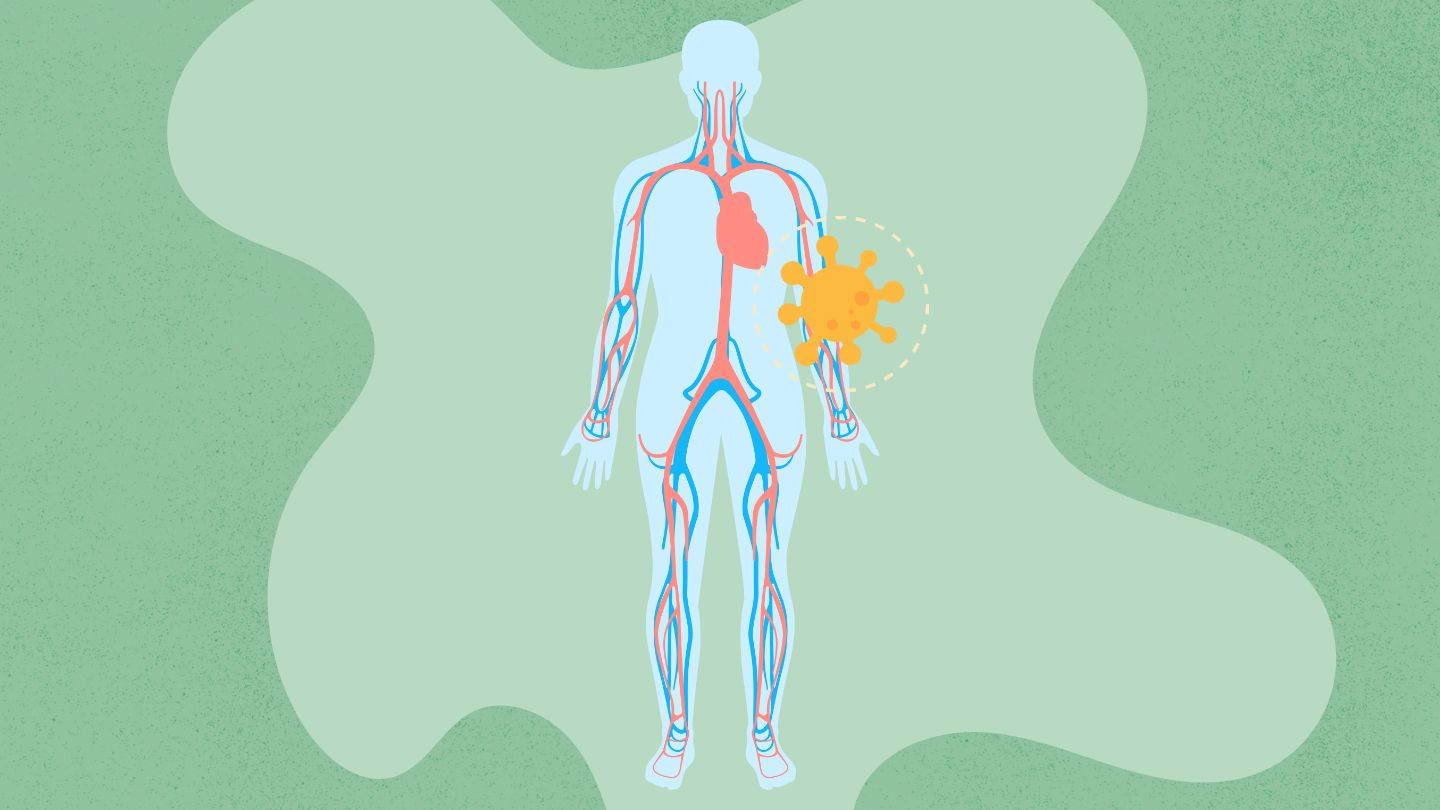COVID-19 may cause lasting damage to your blood vessels — even if your case is mild and you recover without going to the hospital.
A new study examined blood vessel health, a key indicator of heart disease risk, in 2,390 adults from 16 different countries. Participant experiences fell into one of four categories:
- Never had COVID-19
- Mild COVID
- Hospitalized with COVID-19
- Severe COVID-19 treated in an intensive care unit (ICU)
Researchers measured each person’s so-called vascular age — or the flexibility and efficiency of their blood vessels — with what’s known as a pulse wave velocity test. Higher velocity measurements indicate that blood vessels are becoming stiffer and less efficient.
Compared with women who didn’t get COVID, those who did had significantly worse blood vessel health after they recovered, according to study findings published in the European Heart Journal. Among men, there wasn’t a meaningful difference in blood vessel health based on COVID status.
Why Would COVID Be Harder on Women’s Blood Vessels?
The study wasn’t designed to prove how COVID-19 may damage blood vessels or cause vascular aging. But scientists have some theories.
Women have a different immune response to COVID-19 than men, which may improve their survival odds, but also expose them to potential blood vessel damage, says the lead study author, Rosa Maria Bruno, MD, PhD, a pharmacology professor at Université Paris Cité in France.
“Women mount a more rapid and robust immune response, which can protect them from infection,” Dr. Bruno says. “Indeed, men have higher mortality rates after acute infection.”
But women’s more powerful immune response may take longer to turn off, potentially exposing their blood vessels to a sustained immune response that leads to narrowing, stiffening, and premature aging, Bruno says.
Mild COVID Aged Blood Vessels 5 Years; Time in the ICU, 10 Years
Compared with women who never had COVID-19, those with mild cases had average pulse wave velocity measurements that were 0.55 meters per second higher, an assessment of how much longer it takes blood to travel between the artery near the neck to one in the leg.
An increase of around 0.5 meters per second in the time it takes blood to move through the arteries is the equivalent of aging blood vessels about five years in a 60-year-old woman, according to the study.
The measurement was 0.60 meters per second higher in women hospitalized with COVID, and 1.09 meters per second higher in women who spent time in the ICU.
Vaccinated people did appear to experience less vascular aging than their unvaccinated counterparts, Bruno says.
This might be because vaccination helped reduce infection severity, says Behnood Bikdeli, MD, an assistant professor at Harvard Medical School and an associate physician in cardiovascular medicine at Brigham and Women’s Hospital in Boston.
“The less severe the infection and its resultant inflammation, the less likely it is that a person develops severe vascular damage,” says Dr. Bikdeli, who wasn’t involved in the new study.
One limitation of the study is that participants enrolled six months after an acute bout of COVID, which excluded people who had the most severe cases and died before the six-month mark.
Vascular Aging Is Reversible
The good news is that it’s easy to detect and treat accelerated vascular aging, Bruno says. A simple blood pressure test may be sufficient.
“Vascular aging can be reversed with widely available treatments, such as physical activity, or blood pressure-lowering and cholesterol-lowering drugs,” Bruno says. “For people with accelerated vascular aging, whether induced by COVID-19 or not, it is important to do whatever possible to reduce the risk of heart attacks and strokes.”
Read the full article here




